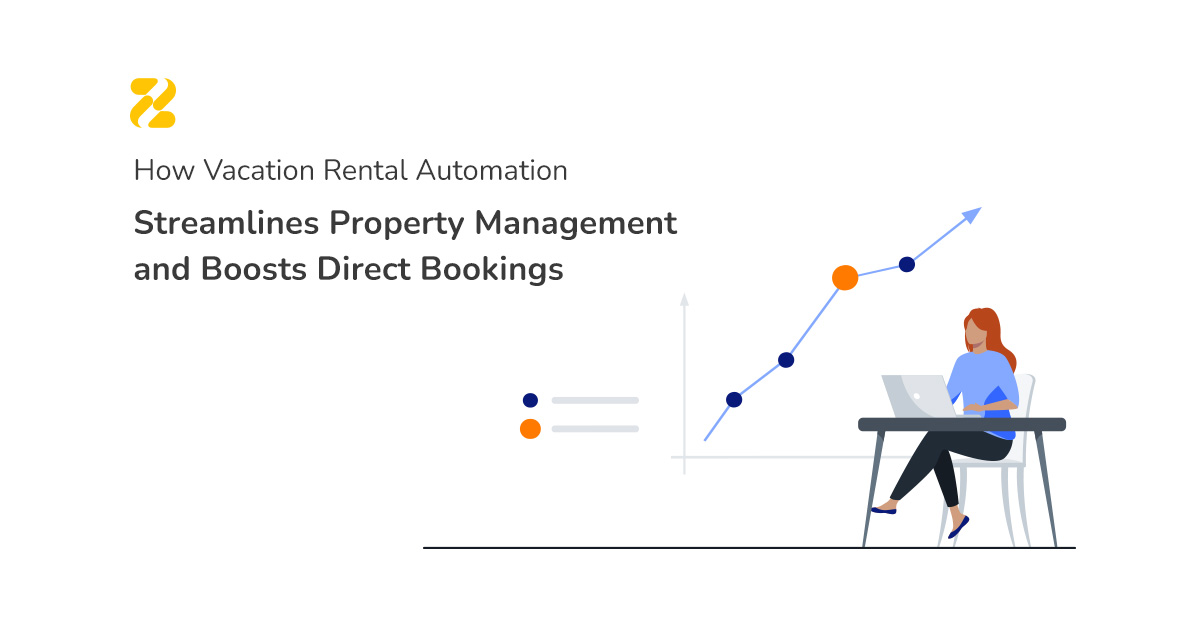Picture this: You’ve invested your hard-earned money into a beautiful serviced accommodation property, dreaming of lucrative returns and happy guests. But as the bookings start rolling in and the bills pile up, you find yourself wondering, “Where is all my profit going?” The answer lies in understanding serviced accommodation management fees, which is the critical aspect of running a successful property.
Whether you’re a seasoned property owner or a budding investor, you must know about the intricacies of management costs. So, buckle up and get ready to transform your perception of operational fees.
Table of Contents
Types of Serviced Accommodation Management Fees
Choosing the right management fee structure for your short-term rental is a crucial decision that can impact your revenue. By understanding the various types of operational costs, you can make informed decisions that align with your goals and budget. Remember to evaluate each fee structure in terms of its transparency, fairness, and the value it offers in terms of services provided. Ultimately, understanding and negotiating the management fee structure will contribute to a mutually beneficial relationship with your property management company.
Percentage-Based Management Fees
Percentage-based operational fees are among the most prevalent models used in the vacation rental sector. Under this structure, the property management company charges a fixed percentage of the rental income. Typically, this fee ranges from 10% to 30% of the monthly rental revenue. This method offers simplicity and aligns the interests of the property owner and manager.

Flat Fee Structure
In the flat fee structure, the property management company charges a fixed amount per property, regardless of the rental income. This model is particularly common for larger properties or portfolio management, where a fixed fee provides predictability and ease of budgeting. However, it’s important to ensure that the flat fee accurately reflects the services provided.
Tiered Management Fees
This type of operational fee is designed to reward property owners as their rental income increases. This structure includes multiple tiers, where the management fee percentage decreases as the rental income thresholds are met. For instance, the fee may be 15% for rental income up to $5,000 per month and decrease to 12% for income above $5,000.
Performance-Based Fees
The hospitality industry is witnessing a growing trend towards the adoption of performance-based fees. In this model, the management cost is tied to specific performance metrics, including occupancy rates, guest satisfaction, or revenue targets. Property owners and managers agree on predefined benchmarks, and the fee structure is adjusted based on the achievement of these goals. This approach fosters accountability and encourages the management company to aspire for optimal results.
Ancillary Service Fees
Apart from the primary operational costs, property management companies may also charge additional fees for specific services. These services could include housekeeping, concierge services, maintenance, or marketing expenses. Ancillary fees are typically charged separately or as add-ons to the base management fee. It’s important to clearly understand which services are covered by these additional fees and evaluate their necessity and cost-effectiveness.
Some Elements Included in Serviced Accommodation Management Fees
Serviced accommodation management fees encompass a variety of components. By understanding the elements included in operational costs, you can evaluate the value provided by the management company. So, you will make informed decisions that align with your goals. Remember to review the fee breakdown carefully and communicate openly with the service provider to ensure transparency and a mutually beneficial relationship.

Marketing and Advertising
Effective marketing strategies are vital for attracting guests to your short-term rental business. Operational fees often include marketing expenses, such as online listings, professional photography, and promotional campaigns. The management company utilises various channels to showcase your property and maximise occupancy rates, ultimately driving revenue for your investment.
Property Maintenance
One essential aspect covered by property management providers is property maintenance. This includes routine upkeep, repairs, and ensuring that the property meets quality standards. The management company is usually responsible for addressing maintenance issues promptly. They coordinate with maintenance staff and ensure the property remains in good condition to provide a pleasant guest experience.
Staff Costs
The wages and salaries of the staff employed by the management company are typically included in the management fees. This covers roles, such as receptionists, housekeeping staff, maintenance personnel, and other necessary positions.
Utilities
Electricity, water, heating, and internet services are often included in management costs. The management company usually handles utility bill payments, metre readings, and efficient use of resources and relieves property owners of these administrative tasks.
Property Insurance
Comprehensive insurance coverage is crucial to protect your serviced accommodation investment. Management fees may include insurance costs, covering areas like liability insurance, property damage, and contents insurance.
Guest Services

To enhance the guest experience, property management companies often cover specific guest services. These may include 24/7 customer support, concierge services, housekeeping, and other services. The organisation ensures that guests receive high-level service, thus contributing to positive reviews, guest loyalty, and increased occupancy rates.
Administrative and Operational Support
Management costs also encompass the administrative and operational support provided by the management company. This includes tasks, such as guest enquiries and reservations, check-in and check-out procedures, financial management, record-keeping, and regulatory compliance.
Property Management Technology
Operational fees may also include the utilisation of property management software or technology platforms. These tools enable efficient booking management, reservations, communication, and reporting. The management company invests in technology solutions to streamline operations and enhance the overall guest experience.
What Tools Can Help with the Calculation of Serviced Accommodation Management Fees?
Calculating serviced accommodation management fees requires careful consideration of various factors and can be facilitated by using certain software. Here are some tools that can help with the calculation of management costs:
Property Management System
Using a property management system (PMS) can streamline the process of calculating operational costs. These software solutions often come with built-in fee calculation features that allow property owners to input key variables, such as rental income, expenses, and fee structures. The software then automatically calculates the management fees based on the provided information, saving time and reducing the risk of errors.
Spreadsheets
Using spreadsheets, such as Microsoft Excel or Google Sheets, can be an effective solution for calculating management costs. Property owners can create customised spreadsheets that incorporate formulas and functions to calculate fees based on certain criteria. Spreadsheets provide flexibility and allow for adjustments and scenario analysis by changing variables and fee structures.

Fee Calculation Templates
Pre-designed fee calculation templates are readily available online and can be a useful resource for property owners. These templates often come in spreadsheet format and provide predefined formulas and fields to input property-specific details. Therefore, property owners can quickly calculate operational expenses based on the template’s structure and customise it to their specific needs.
A Vacation Rental Deal Analyser
A vacation rental income calculator can play a significant role in calculating serviced accommodation management fees. The primary purpose of a deal analyser is to assess the financial viability of a short-term rental investment. However, it can also help property owners evaluate the impact of operational fees on the overall profitability of the venture.
A deal analyser takes into account various financial factors to project the potential returns of a vacation rental property. Within this analysis, it’s essential to include an estimate or calculation of the management costs. By incorporating the operational fees into the financial projection, property owners can determine the net income and evaluate the impact of these fees on the investment’s profitability.
Understanding serviced accommodation management fees is of utmost importance for property owners and investors. By investigating the intricacies of these costs, you can gain valuable insights into where your hard-earned money is allocated. So, you can make informed decisions, manage your finances more effectively, and enhance your vacation rental business profitability.
Image by pch.vector on Freepik.





